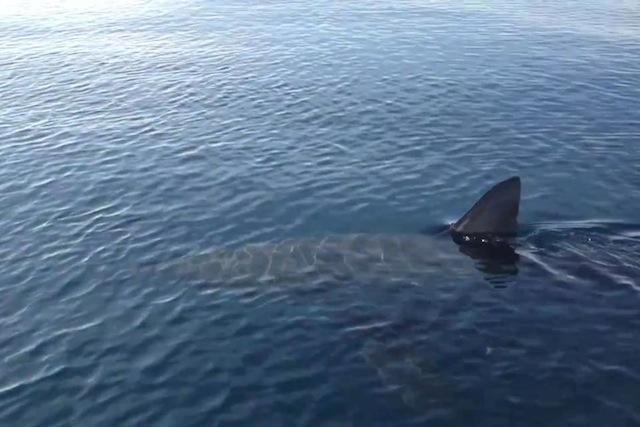
The decorations and holiday music might not make their way below the waves, but sharks have a big reason to celebrate this holiday season. As families around the world prepare festive plans for holiday feasting, thankfully a certain soup is swimming off the menu this year -- shark fin soup. As a result, many of the important and majestic sharks that maintain balance in our marine ecosystems will roam free, fins intact.
Long considered a delicacy in Asia, shark fin soup has been the major driver of the brutal practice known as "finning." Finning contributes to the decimation of up to 74 million sharks each year, through a relentless and unusually cruel hunting practice. Fishermen slice off sharks' fins, and then throw the bleeding sharks back into the ocean to suffer a slow death through suffocation or blood loss. Despite this inhumane and wasteful practice (the rest of the shark meat is never used after the fin is removed), demand for costly shark fin soup has grown dramatically in recent decades as incomes have risen across Asia.
As apex predators, sharks play a critical role in keeping our ocean ecosystems healthy and balanced. Sharks feed on weaker species, and also keep the numbers of smaller predators and fish in check, ensuring that fragile habitats and the food chain don't go off kilter. This all means that when shark populations start to decline, our oceans suffer--as do all of us who depend on healthy oceans for sustenance, food, jobs, and simple enjoyment. Making matters worse, sharks are slow to mature and reproduce, so once their populations drop, it's hard for shark species to recover.
The numbers tell the sad story -- it's estimated that one third of shark species are now threatened with extinction, with some shark populations down 99 percent from their natural levels. This is largely due to finning.
But as we enter the cusp of a new year, sharks are beginning to see a brighter future, thanks to the progress made by countries and states around the world to protect these vital creatures.
The act of shark finning is banned in the United States and almost all countries in the Western Hemisphere, and just last month, Costa Rica announced even stronger protections to prevent poachers from illegally removing sharks' fins. Going forward, all sharks caught and brought to shore in Costa Rica will need to be inspected to ensure their fins are still attached. The European Union also just voted to close an important loophole in its existing shark protections, resulting in a similar "fins-attached" policy.
Many U.S. states are also taking important steps to limit the supply of shark fins. Hawaii, California, Washington, Oregon and Illinois have all made it a crime to possess, sell, trade or distribute shark fins. And worldwide, nations including Venezuela, Palau, Maldives, Honduras and others, are creating safe havens, where sharks can breed and thrive in peace. In fact, just this summer, Venezuela established a 1,440-square mile breeding sanctuary, which will help population recovery for 40 percent of the shark species found in the Caribbean Sea.
Even in China, where a small bowl of shark fin can fetch more than $100 in upscale restaurants, the Chinese government is recognizing the importance of protecting vulnerable shark populations. Shark fin soup will no longer be served at official banquets or government functions in China, under a newly enacted government policy.
Sharks have roamed our waters for hundreds of millions of years, stabilizing ocean ecosystems since before the time of the dinosaurs. Their reign doesn't have to end, if all work together to reduce the demand for shark fins. If your state hasn't enacted a shark fin ban, write to your state leaders. If your country has yet to ban the act of finning or sale of fins, make your voice heard. Together, we can help ensure that the barbaric practice of finning doesn't jeopardize the survival of these amazing creatures.
Watch celebrity chef Gordon Ramsay expose what shark finning really looks like (Warning: this contains graphic footage):
Photo Credit: © C. Hanson
